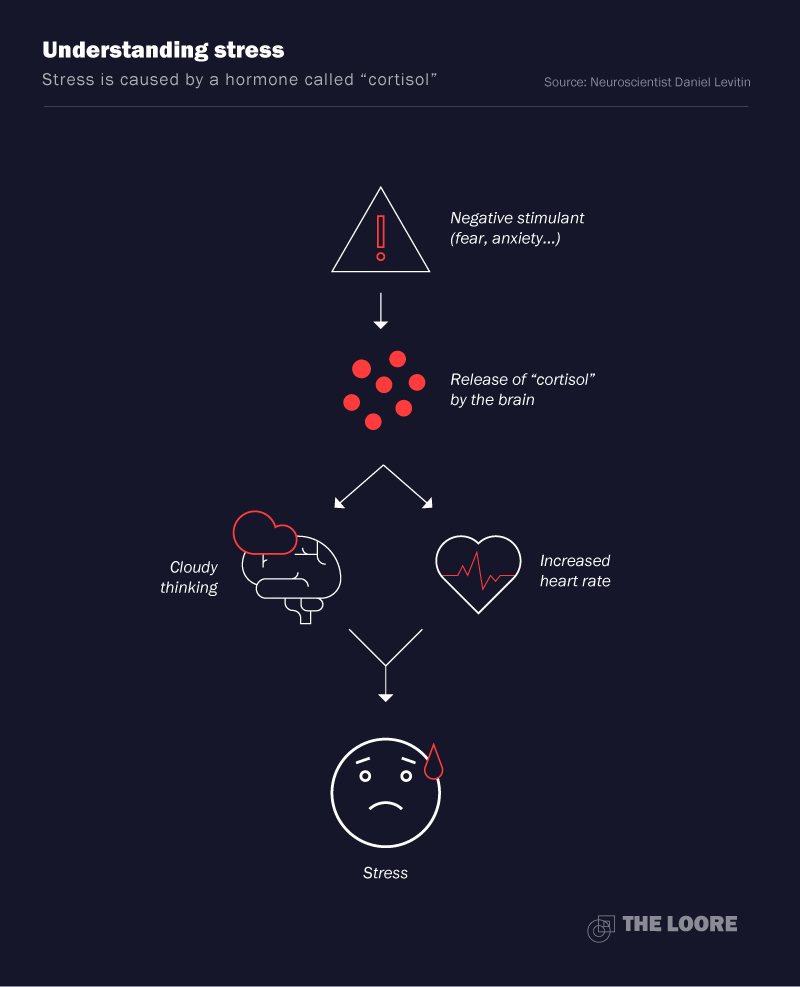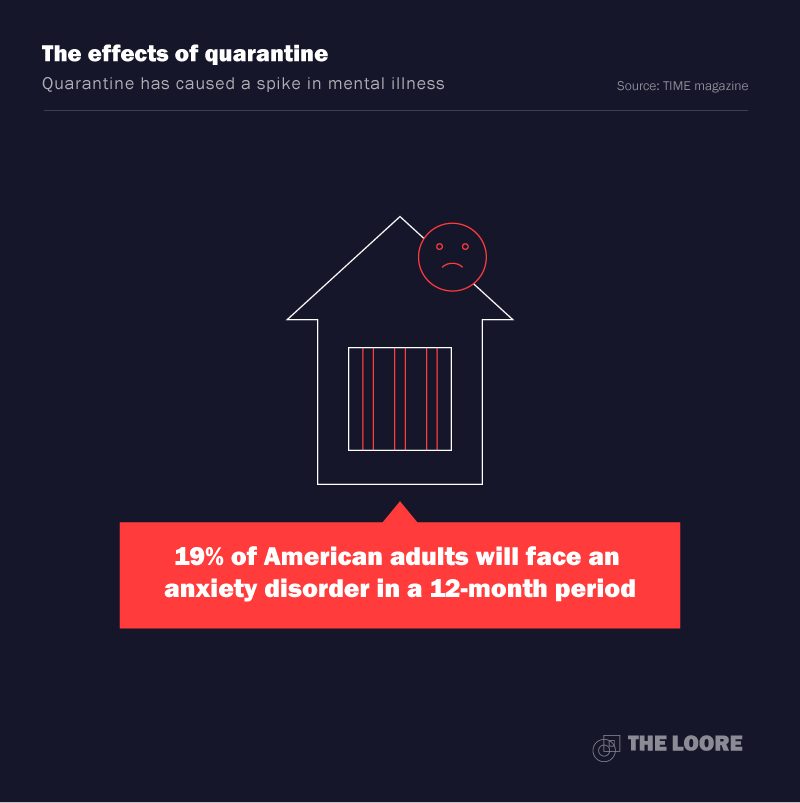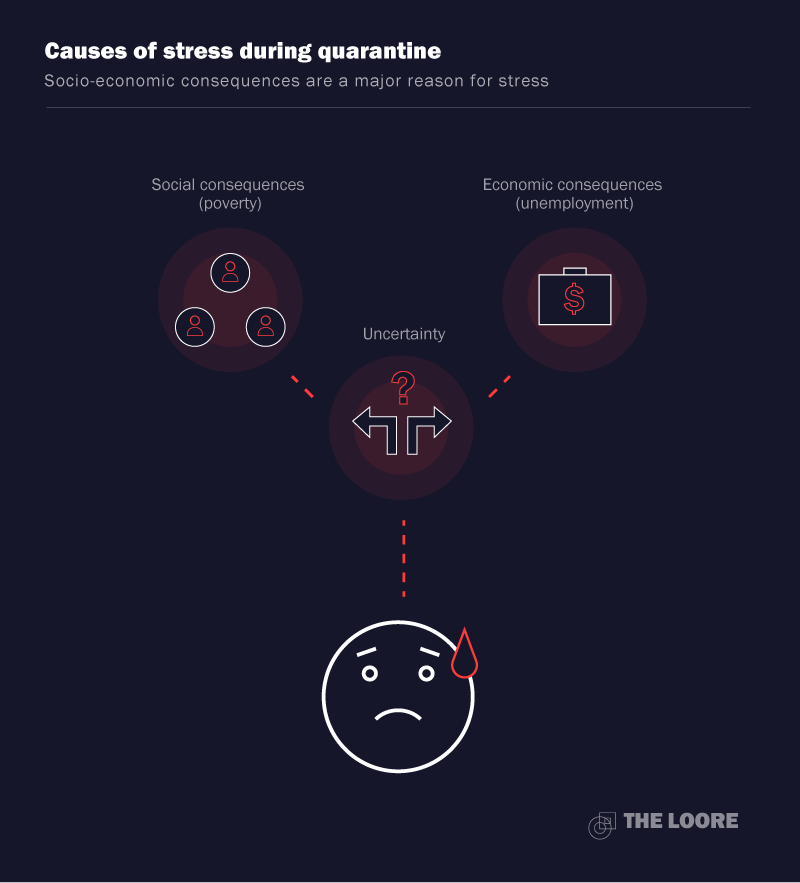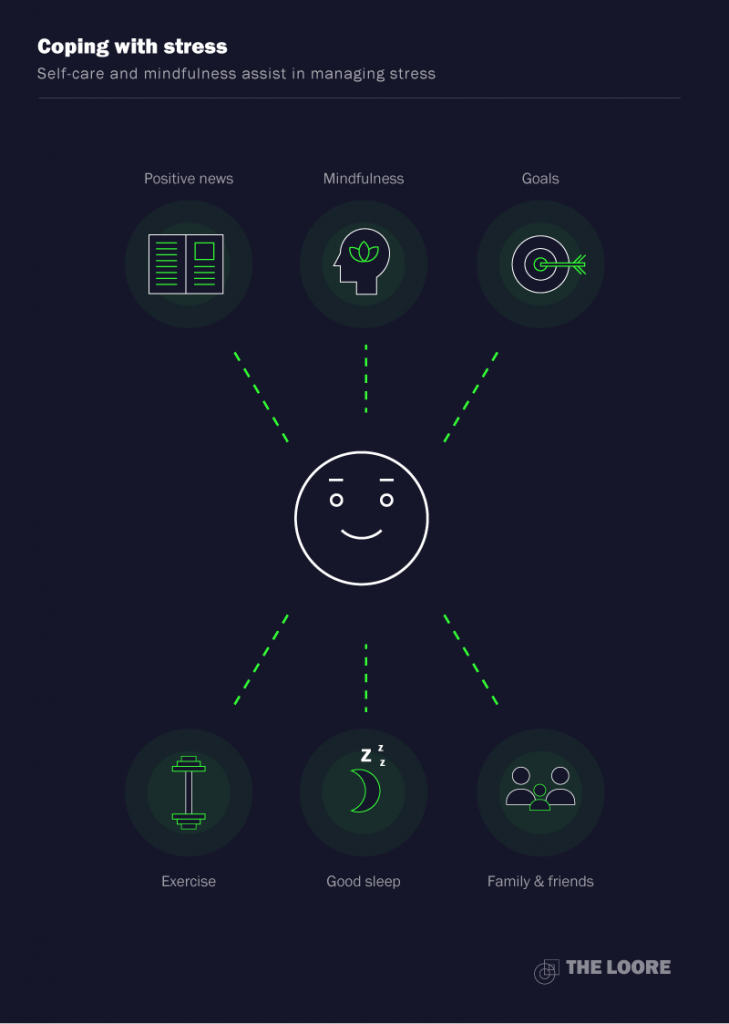The great English writer and poet D.H Lawrence once said, “We’ve got to live no matter how many skies have fallen.”
The COVID-19 pandemic has without a doubt changed many of the norms in our daily lives; this sudden change can have a detrimental effect on our mental health. Countries around the world were placed under strict lockdown, and the feeling of being imprisoned at home has caused depression, stress, and anxiety levels to escalate to higher levels.
Understanding stress
Stress is stimulated by our brains in times of distress and negative emotions; and the sudden imposition of quarantine, as a result of the pandemic, triggered many of the underlying emotions that cause stress. According to the Neuroscientist Daniel Levitin, when a person is going through stress, the brain releases a chemical called “cortisol”, which raises the heart rate, modulates adrenaline levels and clouds our thinking; it also affects the “hippocampus”, which is the part of the brain where all our memories are stored, this causes people to be less productive in work.

The effects of quarantine
When countries around the world began enacting strict national lockdowns; the change came as a sudden shock for the lives of millions around the world. Inevitably, this sudden shift is expressed in negative emotions like fear, uncertainty, anxiety, and boredom; all of which trigger or are triggered by stress. According to an article posted by TIME magazine titled “The Coronavirus Pandemic May Be Causing an Anxiety Pandemic”, it states a study done by the National Institute of Mental Health, that over (19%) of American adults will face an anxiety disorder in a 12-month period. (Kluger, 2020) During such turbulent times, mental health often becomes a silent victim; the fear of socio-economic consequences of the lockdown, such as unemployment and poverty, does not help as well and only compounds the effects. Moreover, those already suffering from a mental illness might see their insecurities get triggered by these negative emotions. According to a survey published by the BBC in an article titled “Coronavirus: Money worries in pandemic drive surge in anxiety”; the findings show that in Britain, more than 25 million people (49.6%) showed higher anxiety levels than the previous year 2019.


in Britain, more than 25 million people (49.6%) showed higher anxiety levels than the previous year 2019.
Coping with stress
The media has a strong effect on our mental health since all the news that it’s currently covering is negative, sparking feelings of fear and worry. In order to cope with the anxiety, we should decrease the amount of time that we spend reading negative news and instead, use this free time on self-development, exercising more often, and maintaining a healthy diet and sleep, in order to balance our “endorphins” and decrease the “cortisol” in our body. All these mental and emotional outbreaks have caused psychotherapy service users such as “Better Help” or “Talk Space” to increase up to (65%) since February. (Kluger 2020)
Anthony Robbins in his book “Awaken The Giant Within”, writes that life is (80%) psychology and (20%) skill; which means that the thoughts that we think and the beliefs that we hold within us throughout the day determine the paths and outcomes in our lives; whether they are positive or negative, it all depends on the quality of our mindset and how we take care of it. Some of the strategies to overcome feelings of anxiety and stress is to practice mindful technics and yoga. In his book “The Monk Who Sold His Ferrari”, Robin S. Sharma states that if we want to overcome the problems that are holding us down, we should be aware of the fact that everything in life is created twice: first in the mind then in reality; this helps us realize that instead of focusing on everything that’s going negative in our current state, we should focus on the good because there always is something good to be grateful for no matter how bad things may seem.

We should decrease the amount of time that we spend reading negative news and instead, use this free time on self-development.
Author: Jack Jizmejian
